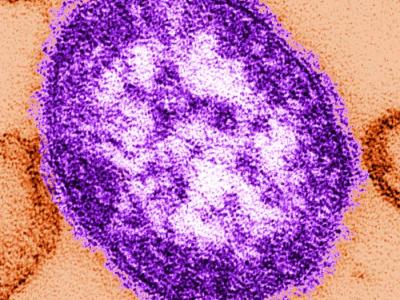Jan 10, 2011 (CIDRAP News) Officials from the US Centers for Disease Control and Prevention (CDC) today praised the performance of Haiti's public health ministry in the wake of two catastrophic health events in 2010, the earthquake and the cholera epidemic.
Commenting in a New England Journal of Medicine online perspective article today, the CDC experts said, however, that Haiti's public health system faces two big challenges in the months and years ahead. One is poor water and sewer systems that were further damaged by the earthquake and have intensified the spread of cholera, and the other is political instability that could undercut the stability of the public health workforce.
The experts, all of whom have global health expertise, include CDC Director Tom Frieden, MD, MPH; Scott Dowell, MD, MPH; who directs the CDC's division of Global Disease Detection and Emergency Response; and Jordan Tappero, MD, MPH, who directs an office the CDC opened in January 2010 in response to Haiti's earthquake.
The January 2010 earthquake destroyed Haiti's public health ministry headquarters in Port-au-Prince, but the national public health laboratory was one of the few public health structures that survived.
Consistent leadership and good use of international resources that poured in after the earthquake have helped Haiti's public health ministry monitor disease outbreaks though a national surveillance system and one in the earthquake displacement camps, the group wrote. The lab, equipped with rapid diagnostic tests, has been able to quickly confirm disease outbreaks.
On the same day the ministry received the first report of watery diarrheal illnesses, a field response team arrived to investigate, the article says. Within 2 days, technicians at Haiti's national lab had identified cholera and characterized its antimicrobial susceptibility. The ministry's nationwide surveillance system has tracked the outbreak almost daily since it started, which has helped officials steer resources to the most needed areas.
"Firm leadership that requires and implements data-driven decision making is unusual, even for some countries with resources far exceeding Haiti's," the CDC experts wrote.
Though developing safe water systems is a key to slowing and stopping the outbreak, the taskspecifically separating drinking water from sewagecould be accomplished with post-earthquake assistance that foreign countries have pledged, they added. However, a stable political climate will be needed to train and employ a strong public health workforce to carry on the health ministry's work.
In December, suspected corruption during initial rounds of voting sparked waves of political unrest and violence, complicating the cholera outbreak response. International observers fear a presidential runoff election, expected in mid January or February, could spark fresh rounds of civil unrest, according to media reports.
In other developments, the Pan American Health Organization (PAHO) said today in an update that the treatment of cholera patients is improving, but some medical care gaps remain in some areas, especially remote mountainous locales. As the outbreak response has evolved, medical teams have been able to weave risk-reduction efforts into their patient-management activities.
PAHO said that as of Jan 1, Haiti's health ministry had reported 171,304 cases, which included 95,039 hospitalizations (55%) and 3,651 deaths. The agency said hospitalization rates vary across the country, possibly because of differences in reporting, differences in access to care, or higher levels of severe cases in areas in the earlier epidemic stages.
The cholera epidemic in Haiti is still increasing, with some departments, such as Nippes, Grande Anse, South, and South East, showing sharp spikes in hospitalizations since early December. PAHO said its field teams have been asked to investigate why some areas are being hit harder by the disease than others.
In South department, health officials have had a difficult time managing dead bodies, PAHO said. For example, in Les Cayes, 64 corpses remained for several weeks at a hospital, because the public opposed their burial in a mass grave.
Health officials coordinating medical supplies recently expressed concern about new deliveries of Ringer lactate, which they said could face customs delays, and the price of oral rehydration salts, which have nearly doubled in recent weeks.
Dowell SF, Tappero JW, Frieden TR. Public health in Haitichallenges and progress. N Engl J Med 2011 Jan 10; early online publication [Abstract]
See also:
Jan 10 PAHO health cluster bulletin


















